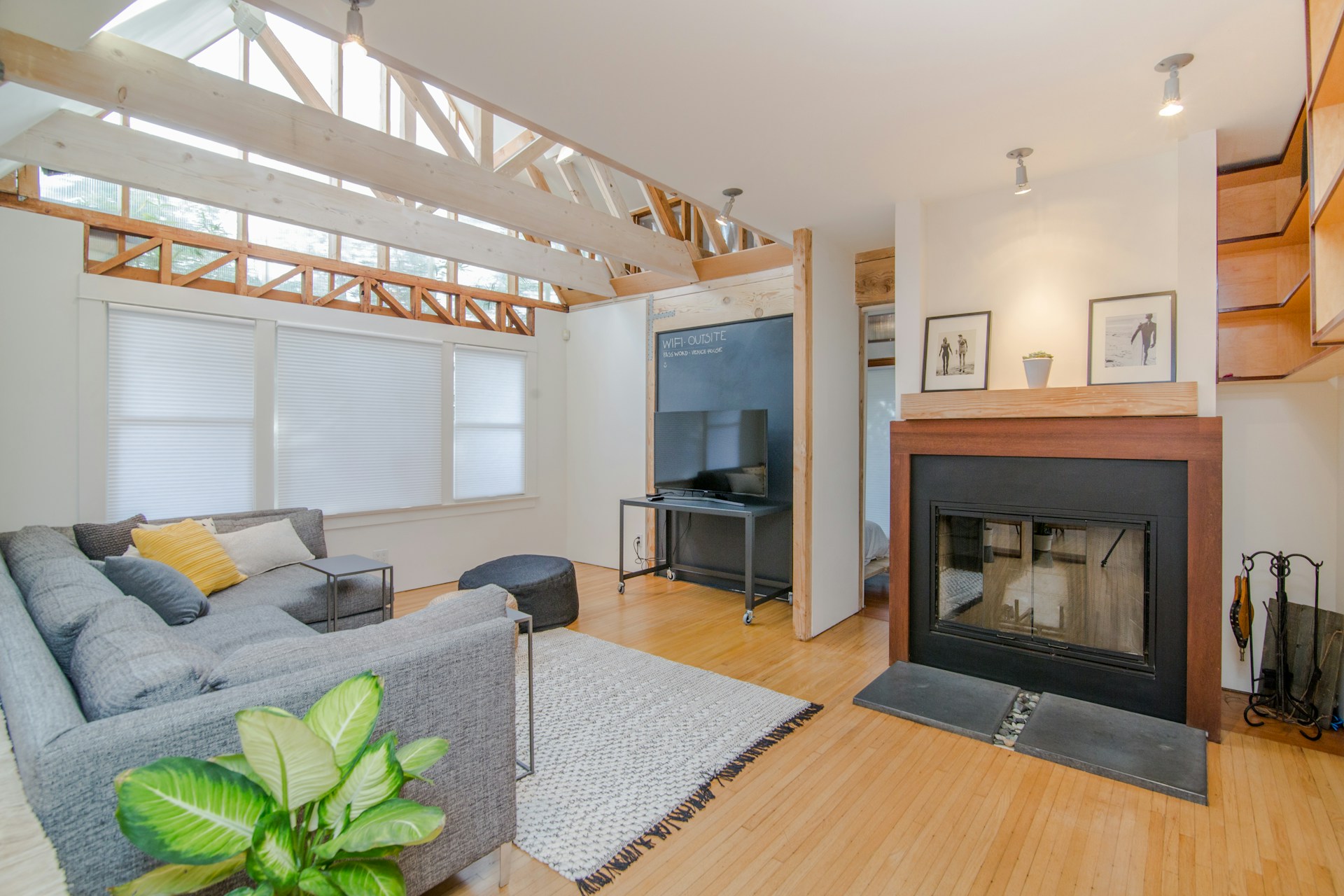Live in Switzerland: Advantages, disadvantages & costs
Want to live in Switzerland? Make your dream come true with this guide to the main aspects of the country of the Alps.
If you’ve come here, it’s because you want to live in Switzerland and at Holafly, we have prepared an article that will help you make this decision.
This country, nestled in the heart of Europe, is known for its lush landscapes dotted with lakes, villages, forests, and the Alps, which cover much of its territory. Switzerland also boasts one of the highest standards of living in the world, thanks to its well-structured economy, high wages, and top-notch healthcare and safety services.
We will also tell you about the main advantages and disadvantages of living in Switzerland as a foreigner. Are you ready to join us for a tour of what life is like in this country?
Quality of life in Switzerland
Did you know that Switzerland has one of the highest costs of living in Europe? According to the 2024 Numbeo Cost of Living Index, the cities of Zurich and Geneva rank among the five most expensive in Europe.
Another report by OECD Prices and Purchasing Power 2023 confirms that the prices of goods and services in this country are 62% higher than in other EU countries.
All of this comes down to several factors — including a strong currency, the Swiss franc, which makes imports more expensive, high demand for housing, elevated wages, and a tax and social system that supports high-quality public services. Here’s a closer look:

Healthcare system in Switzerland
When it comes to healthcare, you’ll have access to excellent private medical services. That’s why having health insurance is mandatory for all foreigners planning to live in Switzerland.
Basic health insurance only covers about 80% to 90% of medical costs, so it’s a good idea to add supplementary coverage. Prices vary depending on the canton you live in, but you can expect to pay around $345 to $690 per year.
The latest study conducted by Euro Health Consumer Index 2023, indicated that the Swiss healthcare system was one of the best in terms of speed and technology.
If you plan to live in Switzerland, you have to know some of the best hospitals, which according to the World’s Best Hospitals 2024 (Newsweek) are:
- Zurich University Hospital: Leader in medical research and transplantation.
- Bern University Hospital: Oncology, neurosciences and stroke treatment.
- HUG, Geneva University Hospitals: Specializes in infectious diseases, pediatrics, and tropical medicine.
Education in Switzerland
Living in Switzerland as a student means being part of a high-quality, practice-oriented education system. According to the OECD’s Education at a Glance 2023 report, Switzerland ranks among the top countries for student performance in math, science, and reading.
Some of the best universities in Europe are located in Switzerland, including ETH Zurich and the University of Geneva. The Swiss education system is widely respected around the world, known for its dual vocational model that emphasizes hands-on learning over theory.
You can also choose from multilingual study programs in German, French, Italian, or English. While tuition can be expensive, there are scholarship opportunities (like the Swiss Government Excellence Scholarships or the ETH Excellence Scholarships) that cover tuition and major living expenses.

Swiss economy
Switzerland has one of the most competitive and stable economies in the world. It ranks among the top three, according to the World Economic Forum’s Global Competitiveness Report 2023. Its key industries include:
- Financial services (banking, insurance)
- Pharmaceuticals and biotechnology (Roche, Novartis)
- Technology and precision watchmaking (Rolex, Swatch)
- Tourism and luxury hospitality
- Food industry (Nestlé)
The Swiss currency is the Swiss franc (CHF), considered one of the strongest and most stable currencies globally.
Salaries in Switzerland
Switzerland’s high cost of living is balanced out by its generous salaries. If you’re thinking about living there as a digital nomad or working for a local company, keep in mind that there’s no national minimum wage—instead, each canton sets its own. Geneva’s, for example, is one of the highest in the world at $5,361 per month.
According to the analysis conducted by the Federal Statistical Office (SFO) in 2024, these are the average gross monthly salaries in the country by sector:
- Technology and IT: $9,210
- Finance and banking: $9,970
- Engineering: $9,230
- Health (doctors): $11,213
- Education (university): $9,684
- Hospitality and tourism: $4,938
Air and water quality in Switzerland
The Swiss government has implemented strict sustainable mobility policies, resulting in clean air even in major cities like Zurich, Bern, and Lausanne. According to Yale’s Environmental Performance Index 2022, Switzerland ranks fourth in the world for air quality and waste management.
When it comes to drinking water, over 80% comes from pristine alpine springs. So, living in Switzerland means you can drink straight from the tap and often of even better quality than bottled water.
Connectivity and internet in Switzerland
As one of the world’s major business and political hubs, it’s no surprise that Switzerland boasts top-notch digital infrastructure and connectivity. According to the EU’s Digital Economy and Society Index (DESI) 2023, the country has an average fixed internet speed of 240 Mbps and 5G coverage reaching over 95% of the population.
The main telephone operators in Switzerland are Swisscom, Sunrise and Salt, in a country with a large offering of e-commerce, digital services and remote work.
To make sure you’re connected as soon as you arrive, we recommend Holafly Plans. They offer unlimited data, reliable and secure coverage, and the ability to connect two devices at once. All for $64.90 per month.
Important: If you are a frequent traveler and want to stay connected without worrying about expensive roaming or looking for a new SIM at every destination, Holafly’s subscription plans are for you. With a single eSIM, enjoy internet in more than 170 countries for a fixed price and no surprises on your bill. Travel without limits and connect easily and securely! 🚀🌍

Advantages of living in Switzerland
As we’ve seen throughout this post, living in Switzerland offers plenty of advantages both professionally and in terms of quality of life. That’s why it’s a top destination for foreigners looking to advance their careers.
We have summarized the five main benefits that you will obtain if you establish your residence in this country:
- High quality of life: You’ll live in a safe environment with excellent healthcare and a stable economy. According to the 2024 Global Social Progress Index, Switzerland ranks among the countries with the highest social well-being.
- Safety: Lowest crime rates in Europe, with 2.6 crimes per 100,000 inhabitants in 2023, according to Eurostat.
- Multilingualism and cultural diversity: With four official languages—German, French, Italian, and Romansh—Switzerland makes it easier for foreigners to integrate.
- Nature and sustainability: Switzerland prides itself on its clean air and water. Plus, the stunning nature of the Alps, Lake Geneva, and the National Park invites you to enjoy outdoor activities like hiking, trekking, skiing, and paragliding.
- Transport: You can explore Switzerland’s most beautiful cities using the Swiss Federal Railways (SBB/CFF/FFS), which even connect rural areas. Plus, driving in Switzerland is safe thanks to its excellent road safety standards.

Disadvantages of living in Switzerland
Before moving to Switzerland, it’s important to consider some of the downsides. Adjusting to a new country can be challenging, especially when the customs are very different from what you’re used to. Here are the main drawbacks to keep in mind:
- High cost of living: Expensive housing, food and leisure.
- Expensive health care system: No free public health care is available.
- Hard to integrate socially: Swiss people are reserved, so it is not so easy to make friends quickly, you will need a little more time.
- Variable climate: This country experiences harsh winters, with temperatures dropping as low as -5°C in the cities and -15°C in the mountains, along with heavy snowfall.
- Strict standards: Switzerland has rules you need to follow—like recycling, quiet hours, and community regulations—that might feel strict to people coming from more relaxed countries.
Frequently asked questions about living in Switzerland
While it’s not mandatory, German is the most widely spoken language, followed by French and Italian. However, most people also speak English, so knowing any of these languages will be enough to help you settle in.
There’s strong demand in finance, engineering, healthcare, IT, and pharmaceuticals. If you’re an EU citizen, it’s generally easier to apply for a work visa.
For example, in Zurich and Geneva, a one-bedroom apartment in the city center starts at around $1,960. In smaller cities like Bern or Lausanne, prices begin at about $1,415.
Yes, transportation in Switzerland is varied and efficient with trains, streetcars, buses and cable cars connecting the whole country.
Zurich, Bern and Lucerne are the safest cities in Switzerland, with low crime rates according to the Federal Statistical Office.





 Language
Language 


















 No results found
No results found







